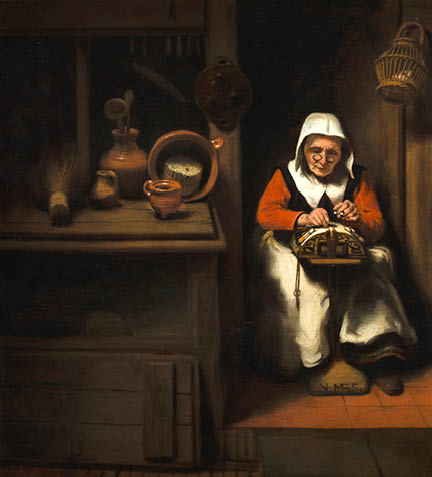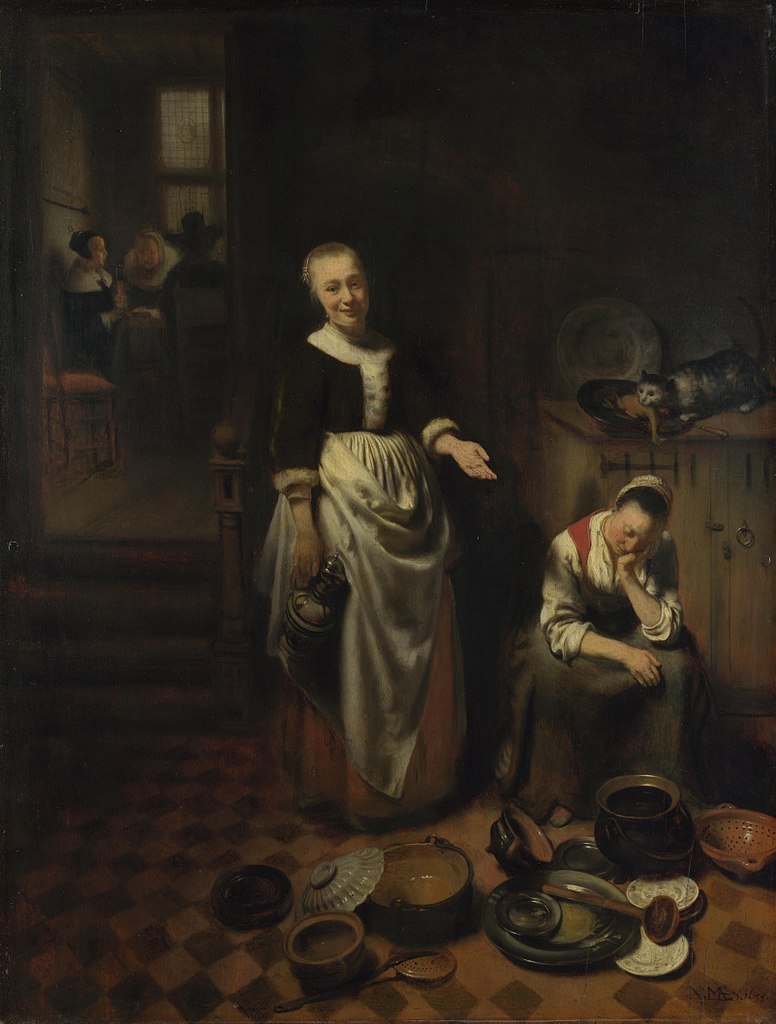22 February – 31 May 2020
The first exhibition exclusively devoted to Dutch artist Nicolaes Maes will open at the National Gallery next February.

Nicolaes Maes, 'The Old Lacemaker', about 1655 The Mauritshuis, The Hague; Purchased with the support of the Friends of the Mauritshuis Foundation, the VSB Foundation The Hague and the Rembrandt Association, 1994 (1101) © Mauritshuis, The Hague

Nicolaes Maes, 'The Idle Servant' 1655
At the heart of the exhibition will be a selection of the intimate scenes of daily life in domestic interiors for which Maes is best known. He was a pioneer of the theme of the eavesdropper; his carefully styled narratives often break the fourth wall, making the viewer a participant in the scene, as characters (often a maid) eavesdrop or point to illicit goings-on.
Also on display will be domestic scenes that are accompanied by an unmistakable, if light-hearted, moral tone showing women spinning, making lace, preparing a meal, or devoutly reading the Bible.
The exhibition starts with the early history scenes Maes painted, mostly on biblical subjects, in the style of Rembrandt when he joined his studio in Amsterdam in about 1650.
Finally, the exhibition will focus on the period from 1673 when Maes settled in Amsterdam and abandoned domestic genre scenes to devote himself almost exclusively to portraits. A group of these lesser-known works will show how he brought a Van Dyckian elegance and swagger to the portraits.
Exhibition organised by the National Gallery, London and the Mauritshuis, The Hague.
Catalogue

This book offers a close look at the art of Dutch Golden Age painter Nicolaes Maes (1634–1693). One of Rembrandt’s most talented students, Maes began by painting biblical scenes in the style of his famous teacher. He later produced extraordinary genre pieces, in which the closely observed actions of the main figure, often a woman, have a hushed, almost monumental character. Maes also depicted mothers with children or older women praying or sleeping; such works have placed him among the most popular painters of the Dutch Golden Age. From around 1660, Maes turned exclusively to portraiture, and his elegant style attracted wealthy and eminent clients from Dordrecht and Amsterdam. This generously illustrated volume is the first in English to cover the full range of his repertoire. The authors—curators from the National Gallery, London, and the Mauritshuis, The Hague—bring extensive knowledge to bear for the benefit of specialists and the general public.